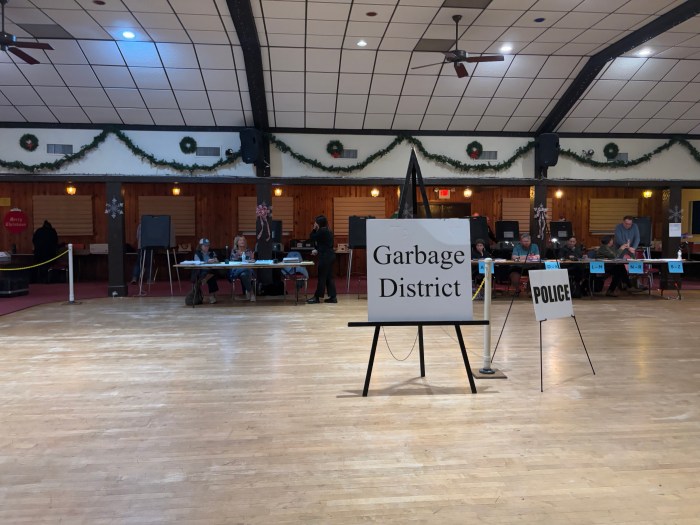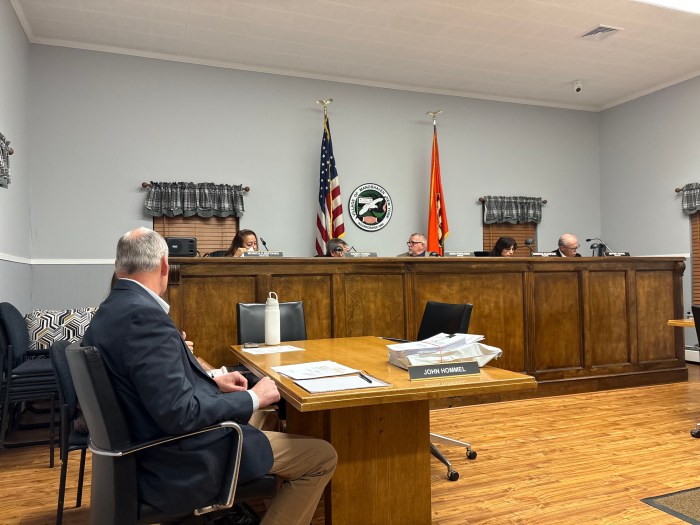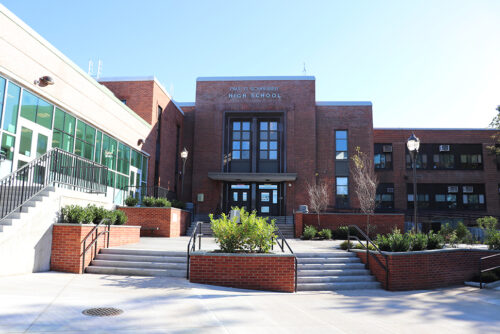 U.S. Senators Charles E. Schumer and Kirsten Gillibrand introduced new legislation in the Senate that empowers the Environmental Protection Agency (EPA) to oversee airplane noise issues across the country, including airplane noise-plagued areas near JFK and LaGuardia airports. Currently, the Federal Aviation Administration (FAA) oversees airplane noise issues, however, Schumer and Gillibrand explained that the EPA is better fit to address these matters.
U.S. Senators Charles E. Schumer and Kirsten Gillibrand introduced new legislation in the Senate that empowers the Environmental Protection Agency (EPA) to oversee airplane noise issues across the country, including airplane noise-plagued areas near JFK and LaGuardia airports. Currently, the Federal Aviation Administration (FAA) oversees airplane noise issues, however, Schumer and Gillibrand explained that the EPA is better fit to address these matters.
“Communities in the New York- metro area have long struggled with incessant airplane noise caused by the highly-trafficked skies above and it’s time we set up an office dedicated to tackling this issue head on,” said U.S. Senator Charles Schumer. “Airplane noise is a major quality of life issue and that’s why it makes sense for the EPA to take the lead role in addressing these matters. This legislation will once again set up an Office of Noise Abatement and Control at the EPA so that environmental experts can address airplane noise.”
“This legislation will provide additional tools to assist communities is addressing excessive airplane noise by reestablishing an EPA Office of Noise Abatement & Control,” said Senator Gillibrand, a member of the Environment and Public Works Committee. “The federal government must take more proactive steps to address the concerns of New Yorkers who are affected by airplane noise, and this bill will give the EPA the ability to act.”
Schumer and Gillibrand went on to say that the EPA’s core mission is to protect human health and the environment, and so it would make sense for the EPA to be granted jurisdiction over airplane noise. Schumer’s and Gillibrand’s new legislation in the Senate, “The Quiet Communities Act of 2016,” restores the EPA’s control over airplane noise matters and creates a dedicated office of noise abatement. The legislation was introduced by Rep. Grace Meng in the House of Representatives. The senators say airplane noise can greatly impact the environment and an individual’s quality of life and that’s why the EPA should take the lead on airplane noise issues. Under the legislation, the EPA would conduct research on the impacts of noise and provide technical assistance and grants to communities to mitigate noise. It would also require the Office of Noise Abatement and Control to carry out a study on airport noise, examining FAA noise measurement methodologies, the threshold of noise at which health impacts are felt, and the effectiveness of noise mitigation measures at airports.
Due to budget cuts in 1981, the EPA’s Office of Noise Abatement and Control was dismantled and the FAA was given oversight into all matters regarding aircraft noise pollution. Schumer and Gillibrand’s “Quiet Communities Act of 2016” would restore the EPA’s Office of Noise Abatement and Control. Moreover, the legislation would require the EPA Administrator to conduct a study of airport noise and examine the FAA’s selection of noise measurement methodologies, health impact thresholds, and abatement program effectiveness.
Schumer and Gillibrand have long supported measures to help address the issue of airplane noise in local communities. Specifically, Schumer and Gillibrand successfully pushed for a hotline phone number for airplane noise complaints. And, after Schumer’s urging, New York State directed the Port Authority to hold regular roundtable discussions in collaboration with FAA representatives and other affected parties regarding issues at two major New York airports. Schumer has urged the Port Authority and FAA to install additional noise monitors at airports and use the data collected to make decisions about changes to flight patterns. Earlier this summer, the senators urged the Port Authority of New York and New Jersey to complete its Part 150 noise studies as quickly and thoroughly as possible so that it can begin taking noise mitigation steps. The Part 150 studies aim to evaluate noise impacts to the communities surrounding JFK and LaGuardia Airport and, once complete, Schumer and Gillibrand said that the studies will recommend measures to mitigate excessive noise where possible.

























